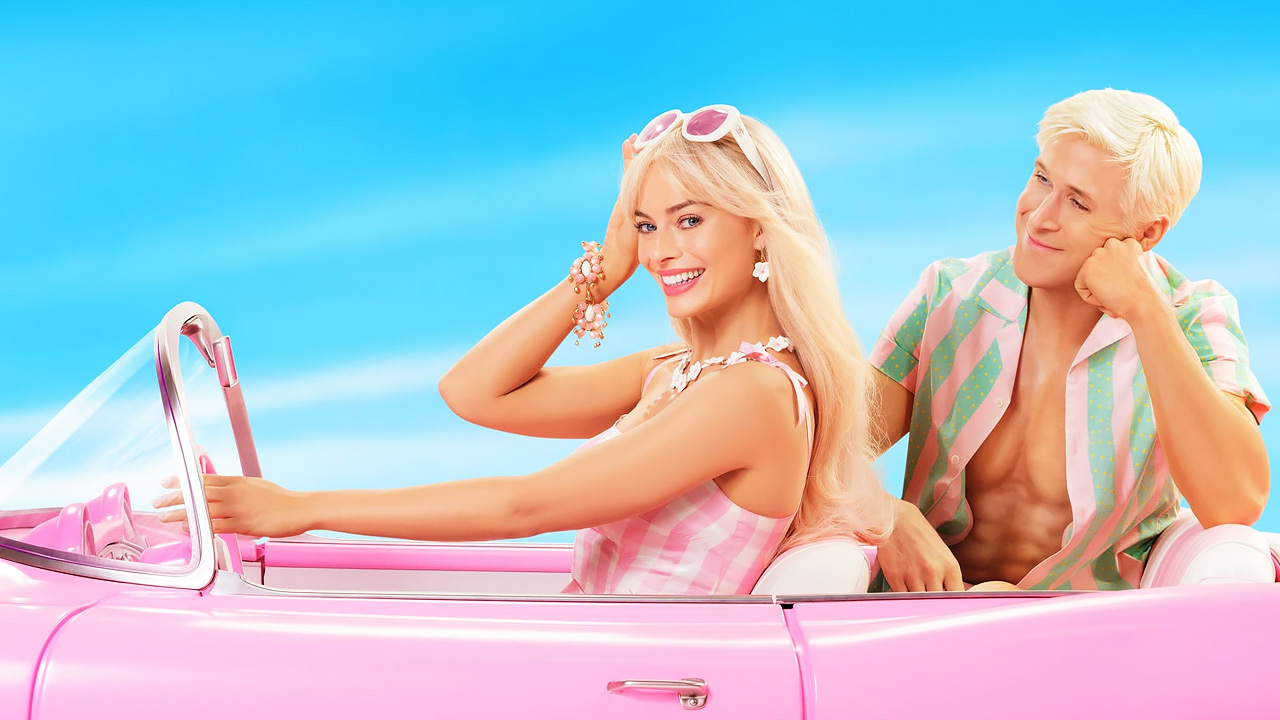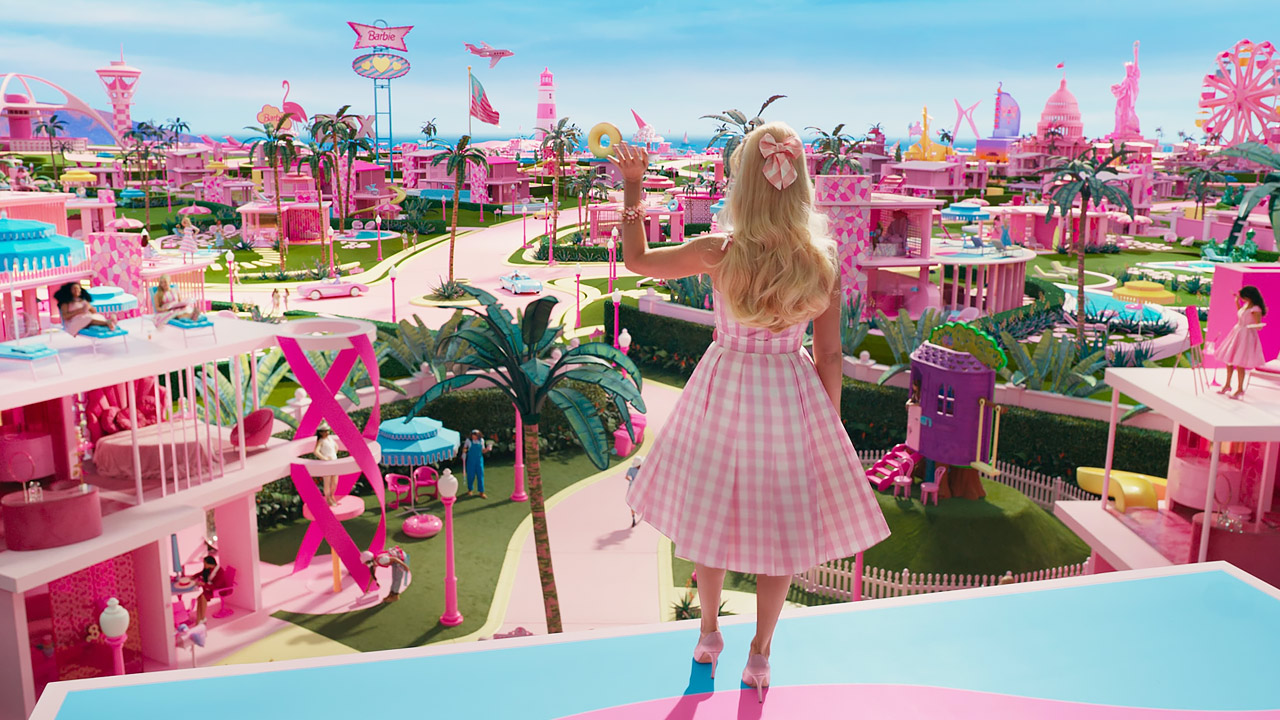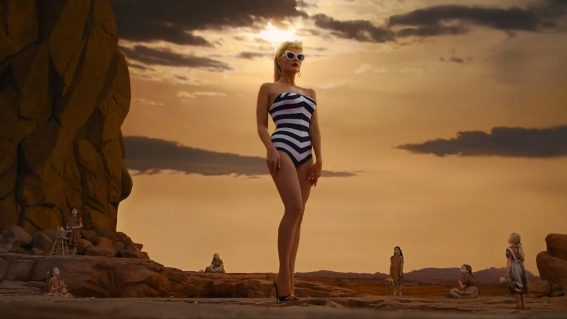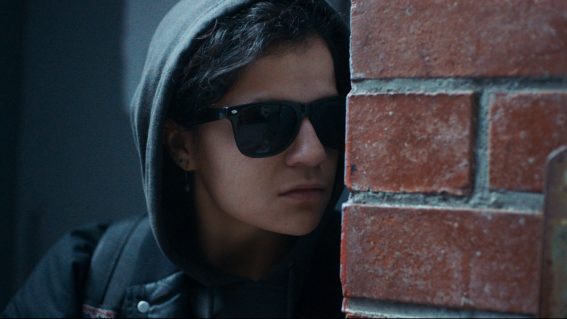Barbie is a weird and wild feministic statement, shaped in candified plastic

Greta Gerwig’s highly anticipated Barbie movie is both a powerful feminist statement and an audacious marketing maneuver from one of the world’s largest toy companies, writes Luke Buckmaster.
As part of the marketing campaign for Greta Gerwig’s Barbie movie, life-sized Barbie boxes were rolled out into cinemas in weeks preceding its release. Patrons stepped inside, smiled through the plastic, and uploaded photographs of their freshly Mattel-ed selves onto social media. Little did they know, they were embracing the very image, the very metaphor the film rallies against. The box is a cage and Barbie can be empowered only when out of it. After disrupting the status quo by waking up, like Neo, and exiting the simulation of her daily life in Barbie Land, Margot Robbie’s protagonist is pressured by Mattel’s (all-male) board to restore things to the way they were. To do this she must literally step back into the box.
The hero instead, of course, chooses the path to enlightenment and fights the patriarchy in a vibrantly colourful, varied and spectacularly inconsistent film, which is staunchly and quite wonderfully feminist. Gerwig turns what could’ve been milky fish-out-of-water comedy into blockbuster social commentary, making it accessible through glossy aesthetic, broad comedy and a hodgepodge of styles and inspirations. She seems to have embraced the project as a moral and intellectual challenge: to make a production with ethical, empowering messaging that’s also inescapably a marketing exercise for one of the world’s largest toy companies, pedalling a product with a checkered past.
Barbie dolls famously have a long history of negatively impacting women, lowering the self-esteem of young girls through their presentation of “perfect” i.e. unnaturally thin bodies. The doll’s dark history is playfully acknowledged in the movie when a side character lambasts the brand for, among other things, “setting feminism back 50 years.” This moment is softened by characterisation, the same rebel crying out “fascist!” a heartbeat later. But a line like that still stings. It was let through the gate because Mattel decided to present as a company that’s learned from its mistakes and is adapting to changing tides.
The film itself presents as a daffy work that delves where angels fear to tread—but in fact it’s cunningly executed, Gerwig and co-writer Noah Baumbach emerging from fraught spaces with mostly clear and sound moral messaging. It takes a bit to get going, Gerwig frontloading a joke referencing already one of the most parodied sequences in film history: the ape from a 2001: A Space Odyssey figuring out how to use a bone as a weapon, accompanied by Richard Strauss’s iconic Also Sprach Zarathustra. In Barbie, the bone a girl’s doll and the monolith a winking Margot Robbie. This weird opener feels tacked on at the eleventh hour.

We move to the bizarro Barbie Land, with its retina-burning pinks, roses, magenta and blues. There’s dancing, parties, walks on pink sand at the beach. There’s lots of “hi Barbie” and “hi Ken”—almost everybody in this world being a variation of one of them. The vibe is programmed happiness, like in the The LEGO Movie’s location-establishing “everything is awesome” sequence. The core joke is that this is an infant’s world populated by adults: a reverse Bugsy Malone. One day the music and mirth screeches to a stop when Robbie’s Barbie asks her friends, apropos of nothing, if they ever think about dying.
The protagonist is taken to the town’s witch doctor surrogate, Kate McKinnon’s Weird Barbie, who explains that she must visit the real world to make things right (let’s not get bogged down by plot logic). With Ryan Gosling’s Ken tagging along, they arrive in our world and the film reveals its true colours. A key early joke has Barbie observing a Miss Universe billboard and exclaiming “oh look, the Supreme Court!” It becomes clear that Gerwig and Baumbach have constructed two opposite worlds: a patriarchy in one, a matriarchy in the other. This is interesting terrain for feminists, given the writers acknowledge not just that each world is imperfect, but that each have a subservient gendered underclass.
When something untoward changes the state of Barbie Land, the big question becomes: if this place needs saving, what should it look like when rescued? It’d be wild for Gerwig to advocate reverting to the original simulation, with its eery pleasantries and hardcoded smiles. You can get a sense of the games the writers play and the lines they walk. The ideological dancing around Gerwig does is more fun than the movie’s actual dancing, its musical sequences lacking pop and crackle. The characters are so intentionally incomplex (brought to life in performances that are knowingly one-note) they almost don’t have an ability to put yearning into words. So we get flat asinine numbers like Just Ken (“Cause I’m just Ken / Anywhere else I’d be a 10”).
What we also get, more broadly speaking, is an unpredictable and giddily imperfect film that tosses around plenty of material for future theses, with a bumpy pace and a jovial tone concealing its inner workings. There’s disappointing diversions (did we really need the Pinocchio subtext?) and overall this is a Mattel marking pivot, however colourful and audacious. It’s also a wild and weird feminist statement, shaped in candified plastic.




















